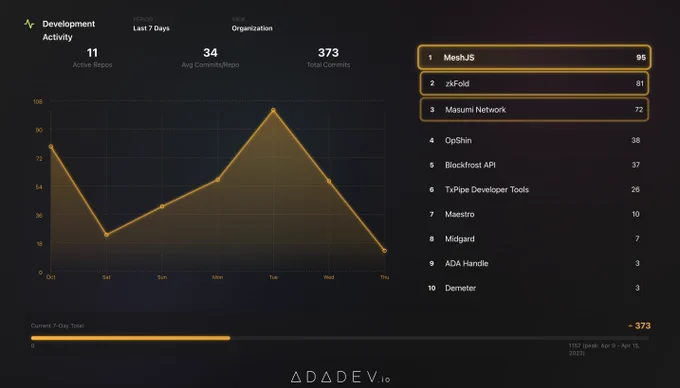Cardano Smart Contracts in Python. You want it. You buidl it. $opshin
Cardano
Joined June 2022
- Tweets 897
- Following 70
- Followers 3,102
- Likes 1,327
Pinned Tweet
Did you know? OpShin solves one of the biggest challenges on #Cardano - onboarding new developers.
Traditional Cardano SCs are written in Haskell, known to 0.67% of developers. OpShin lets you write them in Python, known to a whopping 25% of developers!
More? 👇
If you want to write Cardano smart contracts in something that looks like type script, this is a great choice.
Even has loops and mutable variables! They finally joined the dark side 🤓🐍
Anyone notice something new about our homepage? 👀
opshin.dev
OpShin | Python SCs retweeted
We recently released support for Plutus V3 in OpShin. What next? 🐍🥅
We designed a small survey to help us understand your needs and focus on them for our future releases. By filling out this survey, you would help us a lot! It will only take 10 minutes, promise 🤞
listenlabs.ai/s/opshin-plutu…
Who's pushing this week?
7-day Cardano Development Activity
Top projects: @meshsdk @zkFold @MasumiNetwork @OpShinDev @blockfrost_io
373 total commits from 11 projects
See more at: adadev.io
The week is almost over. Let's check the stats.
7-day Cardano Development Activity
Top organisations: @MasumiNetwork @zkFold @OpShinDev @meshsdk @blockfrost_io
612 total commits from 12 projects
See more at: adadev.io
We would love to see this integrated into chain explorers too. If any chain explorer is interested in integrating it, feel free to DM us here, on Discord or via mail!
Are you curious about Smart Contracts on Cardano? 👀🐍Maybe you saw the "Contracts" tab in your favorite Cardano explore but didn't know what to make of it?
We present the uplc-viewer! Copy in your favorite contract to see
- which language was the contract written in
- how does it look in native representation (any hardcoded keys or suspicious error messages?)
- cbor encoding for natively written contracts
Head to uplc.opshin.dev to inspect your favorite contracts!
Please see the migration guide for details on how to adapt your smart contracts to PlutusV3.
book.opshin.dev/smart_contra…
OpShin 0.27.0 is out 🎉📦🐍
This version ships PlutusV3 support, bringing lower execution costs and unlock multi-purpose scripts, zero-knowledge proofs, and scripts without datums!
github.com/OpShin/opshin/rel…
OpShin makes it very easy to write imperative code. If an imperative solution is much more efficient, as for example when computing the nth Fibonacci number, this can make a huge difference.
OpShin | Python SCs retweeted
Devs don't pay full price.
They hack their way to discounts! 🤓
Get @CardanoSummit ticket discounts on Asteria 🚀
Learn how 👇🧵



















